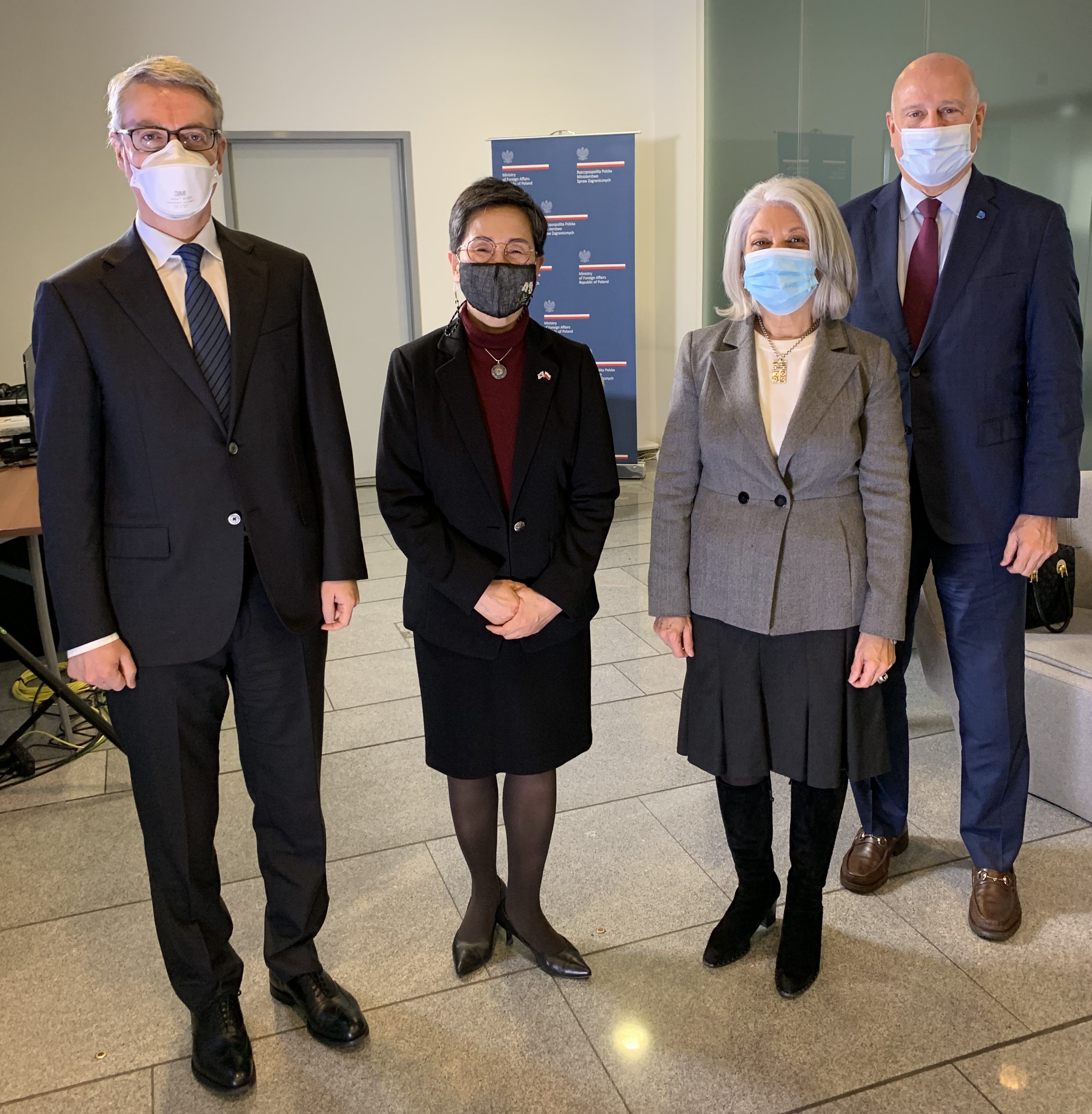

Remarks by the Secretary General Thomas E. Garrett at the Warsaw Dialogue for Democracy
On December 10, 2021, SG Thomas E. Garrett participated in the 9th edition of the Warsaw Democracy Dialogue (WDD).This regular international conference is organized by the Polish Ministry of Foreign Affairs since 2012. The 2021 edition of WDD was dedicated to the impact of the COVID-19 pandemic on democratic societies.
Full remarks by SG Thomas E. Garrett
Distinguished Ambassadors,
Dear Participants,
It is my pleasure to represent the Community of Democracies again in the Warsaw Dialogue for Democracy.
Let me express my appreciation to the Polish Ministry of Foreign Affairs and to the Minister of Foreign Affairs, HE Mr. Zbigniew Rau, for organizing this event which, since 2012, has brought together civil society activists, academics, experts and government representatives from around the world to discuss ways of promoting democracy and fundamental freedoms.
Let me welcome our speakers:
HE MS. Ana Maria Ramirez, Ambassador of the Argentine Republic
HE Ms. Mira Sun, Ambassador of the Republic of Korea
HE Mr. Stefan Gullgre, Ambassador of the Kingdom of Sweden
It is a pleasure to see the Member States of the Governing Council of the Community of Democracies so fully represented in this panel.
This year the organizers chose a current subject, “Resilience of democracy in the times of COVID19”. During our discussion we will explore themes related to the potential threats, challenges, and opportunities regarding the impact of COVID-19 pandemic on democracy and post-pandemic recovery affecting civil society and human rights.
This panel discussion will focus on the role of countries and organizations in building democratic resilience in this demanding period. It will serve as a platform to have an open conversation based on different experiences about potential threats, challenges, and opportunities regarding the impact of COVID-19 pandemic on democracy and post-pandemic recovery affecting democratic states with a focus on identifying and sharing best practices that could stimulate further reflection and action.
If I might say a few words before we hear from our esteemed panel.
In general, we define democratic resilience as the persistence of democratic institutions and practices. It must be noted that democracy’s resilience in many countries can be fragile. We must constantly be aware of how civil liberties and democratic institutions can be impacted in unexpected ways by a state’s actions.
COVID-19 is an unprecedented threat to public health and governments around the world have been implementing extraordinary measures. The necessary use of such emergency measures may bring inherent risks to democracy, the rule of law, civil society, human rights, and fundamental freedoms. These measures could result in the closure of civic space and restrictions on civil and political rights, both offline and online, undermine the engagement of civil society, and a general backsliding of democratic progress globally.
To help democracies mitigate these dangers, there exists a special role for non-governmental organizations – as watchdogs of human rights and fundamental freedoms.
Moreover, collaboration between governments and civil society will be essential to recovery from this health, economic, social, and humanitarian crisis. Civil society organizations play a vital role in raising awareness, sharing information, informing responses, advocating for democracy and human rights, and holding governments accountable.
As the COVID-19 pandemic continues to affect the international system, the international community should respond to the global crisis as a window of opportunity for adaptability and innovation, which are key attributes of resilience, at the levels of individuals, society, and institutions



